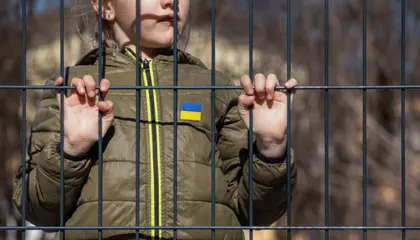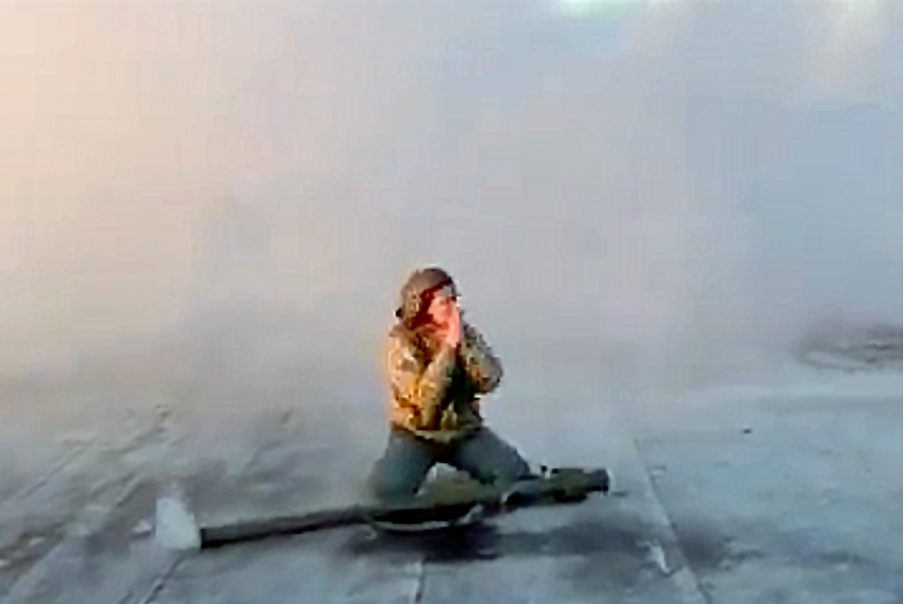On Jan. 25, 2024, the Parliamentary Assembly of the Council of Europe (PACE) approved a resolution with regard to the situation of Ukrainian children in Europe, including those abducted and subjected to Russian efforts to erase the children’s identity, as well as those who have found refuge in the countries of the European Union and are in need of protection and refuge. The resolution was supported unanimously by the 85 members of PACE. In a strong step in support of the Ukrainian government’s case against Russia in the International Court of Justice for the crime of genocide introduced on Feb. 26, 2022, the PACE decision calls on the national parliaments of all Council of Europe member states to adopt positions “condemning the war crimes against children and recognizing deportations, forcible transfers, and unjustifiable delay in repatriation of Ukrainian children… as a crime of genocide.”
In a related matter, for several weeks, Ukrainian officials have been condemning a decision by the Russian government to “fast-track” the adoption of abducted Ukrainian children by Russian families. On Jan. 4, 2024, a “citizenship decree” was signed by Russia’s president to simplify the process of granting Russian citizenship to “foreign nationals and stateless persons.” Officials in Kyiv drew attention to a contentious section that orphaned Ukrainian children, or those without parental guardianship (i.e., forcibly separated from their parents following Russia’s invasion of Ukrainian territory) can be swiftly assigned Russian citizenship via presidential decision.

‘Good, But Not Enough’ – Major Russian Pro-War Bloggers Try to Justify Killing Ukrainian POWs in Kursk
JOIN US ON TELEGRAM
Follow our coverage of the war on the @Kyivpost_official.
While theft and stealing may not be legal terms, they do accurately reflect the truth. Stated simply: Russia is stealing Ukraine’s children.
The heroic and outstanding resistance of Ukraine to Russia’s massive invasion in February 2022 rapidly brought Ukraine into world consciousness. This emergence also brought to the forefront the horrific consequences of this brutal war: tens of thousands of dead, purposeful destruction of civilian infrastructure, permanent physical injuries, psychological trauma, and economic disaster. Also, among the horrific consequences is an ever-lengthening list of war crimes.
International law states that certain actions taken during times of war are particularly heinous, such as the intentional killing of POWs, purposeful denial of food and water to captives, torture, mutilation, rape, and sexual violence, the deportation and forcible transfer of civilians – adults and children.
Towards the end of summer 2022, news emerged from Ukraine that parents living in Ukrainian territories occupied by Russia that spring had been convinced by Russian occupying forces to send their children to Russian summer camps. Parents were given assurances by the occupiers that their children would be safe, away from the dangers of war. Rightly, or wrongly, thousands of parents believed this lie and sent their children to what they believed to be a temporary reprieve from danger.
As the beginning of the school year approached, parents learned that their children would not be returned. Russia would hold on to their children, ostensibly for the children’s well-being. The angry reaction by parents to the 2022 summer camp swindle brought to the forefront an up-until-then low-key, but ongoing war crime: Russia had been stealing Ukraine’s children since 2014, after the first invasion of Ukraine and occupation of Luhansk, Donetsk, and Crimea.
Evolution of a war crime
The media uses various terms to describe Russia’s crimes against Ukraine’s children: kidnapping, removal, taking, abduction. None adequately names the crime. Kidnapping is the most inaccurate since the term implies that the child will be returned, which is not Russia’s intent. The terms removal and taking lack specificity. Abduction, while accurate, does not convey the depth of the crime. While theft and stealing may not be legal terms, they do accurately reflect the truth.
Stated simply: Russia is stealing Ukraine’s children.
In violation of international law, as outlined in the Geneva Conventions, Russia forcibly transfers and deports children. Forcible transfer involves the moving of children within one territory – in this case from one occupied location to another in Ukraine, such as from Russian-occupied Mariupol to Russian-occupied Crimea. Deportation means the moving of children across the border into Russia proper. According to Article 147 under the Fourth Geneva Convention, the forcible transfer and deportation of children is a war crime, and one of the factors in determining the broader crime of genocide.
While parents may have sent their children willingly to camps, the bait-and-switch denying them a return is unlawful, a basis for the accusation of a war crime.
Although broad awareness about the theft of children from Ukraine did not arise until later in 2022, already in April of that year, Ukraine’s then Commissioner for Human Rights Liudmyla Denisova alerted the United Nation’s Committee on the Rights of the Child and other international watch groups that more than 121,000 children had been abducted from Ukraine in less than two months. By mid-summer, the number had more than doubled to 276,000. Denisova warned that children were being taken not for humanitarian relief or medical aid, as claimed by Russia, but in accordance with a Russian government plan to make these children available for adoption by Russian families and assimilated into Russian society, a strategy to depopulate Ukraine.
Throughout 2022, information about Russian war crimes began to appear regularly in international outlets – in no small part because Russia continually boasted about such actions, twisting the truth, and identifying deportation as “rescues,” deportees as “refugees,” and the abduction of children as a “humanitarian” gesture.
In a July 13, 2022, statement US Secretary of State Antony Blinken noted that Russia claimed that between 900,000 to 1.6 million Ukrainians, among them hundreds of thousands of children, had been “rescued” and transported to remote regions of Russia’s Far East in the four months since the start of the February invasion. Denying Russia’s characterization of these deportations as “rescues” Blinken said: “Children are separated from their parents, their Ukrainian passports confiscated, they are issued Russian passports.” As such, they are prevented re-entry into Ukraine in “an apparent effort to change the demographic makeup of parts of Ukraine.”
On Aug. 16, 2022, Interfax Russia reported that a top Russian military authority stated officially that 556,000 children had been taken from the Donbas region to Russia proper since 2014.
In keeping with the mandates of the Genocide Convention, when informed, countries are obligated to forestall and prevent actions that conform to genocidal intent.
In November 2022, Amnesty International (AI) released a report “Like a Prison Convoy: Russia’s Unlawful Transfer of Civilians in Ukraine and Abuses During ‘Filtration,’” which detailed how Russian and Russian-controlled forces transferred and deported civilians from occupied Ukraine further into Russian-controlled areas or into Russia itself. Adults were jammed into “filtration camps,” forced through hostile interrogations and an abusive screening process. As in Blinken’s statement, the AI report also underscored children, regardless of age, were separated from their families, in violation of international law.
“Russia’s Systematic Program for the Re-education and Adoption of Ukraine’s Children” was the report released in February 2023 by The Ukraine Conflict Observatory (Conflict Observatory), a US State Department supported program within the Yale School of Public Health. The comprehensive study focused specifically on the topic of Russia’s deportation of minors. Also in February, the Estonian-based International Center for Defense Studies (ICDS) released their report, “The Stolen Children: How Russia Attempts to Kidnap Ukraine’s Future.”
Conflict Observatory findings were sobering in the level of detail. Russia had forcibly transferred and deported Ukrainian children between the ages of 4 months and 17 years. In Russia and Russian-occupied Crimea, the report identified 43 “patriotism camps” in which Ukrainian children were put through Russian “patriotism programs.” These programs sought to integrate “children from Ukraine into the Russian government’s vision of national culture, history, and society.” Patriotism programs include “the mandatory speaking of Russian, forced recitation of disparaging statements about Ukraine and Ukrainians, requirements to sing the Russian national anthem, and praise of Russia’s president, Vladimir Putin.” The report’s comprehensive research methodology included analysis of satellite images that identified the location of the patriotism camps scattered throughout Russia.
The conclusions of both reports pointed towards Russia’s genocidal intent to eradicate Ukraine and Ukrainians: the Russian government developed a sophisticated plan to remove children from Ukraine, and then offer Ukrainian children to Russian families for adoption, even if the children were known not to be orphans. This policy of forcible transfer, deportation, and re-education of Ukrainian children is orchestrated purposefully at all levels of the Russian government, both reports stated.
Findings were presented at a special session “Violations of the Right of the Child” at the United Nations in late February 2023. Daria Herasymchuk, Ukraine’s Commissioner for Children’s Rights and Child Rehabilitation, bluntly called on all actors in the international community to join in rescuing deported Ukrainian children. She reminded those present that such actions are “one of the components of the crime of genocide against the Ukrainian people” and, in keeping with the mandates of the Genocide Convention, when informed, countries are obligated to forestall and prevent actions that conform to genocidal intent.
In their Spring 2023 report, the Parliamentary Assembly of the Council of Europe (PACE) strongly condemned the forced “russification” of deported children, noting that the russification process was “clearly being planned and organized in a systematic way” as state policy and had the abhorrent aim of “annihilating every link to, and feature of, the children’s Ukrainian identity.”
On April 30, the UN Security Council held a meeting on the “Abduction and Deportation of Children During Armed Conflict.” Contrary to the UN norm, the session was not broadcast on UN WebTV. Russia, a permanent member of the UN Security Council, objected to the webcast on this specific topic. In this manner, the hearing would not become part of the UN video archive. (In protest, the Permanent Mission of the United States to the United Nations streamed the session live on YouTube).
Irene Jarosewich, is the Main Representative from World Federation of Ukrainian Women’s Organizations to the United Nations Department of Global Communications/Civil Society Unit. This article first appeared in the US-based journal “The Ukrainian Quarterly” in January 2024 and is reprinted with permission.
You can also highlight the text and press Ctrl + Enter






